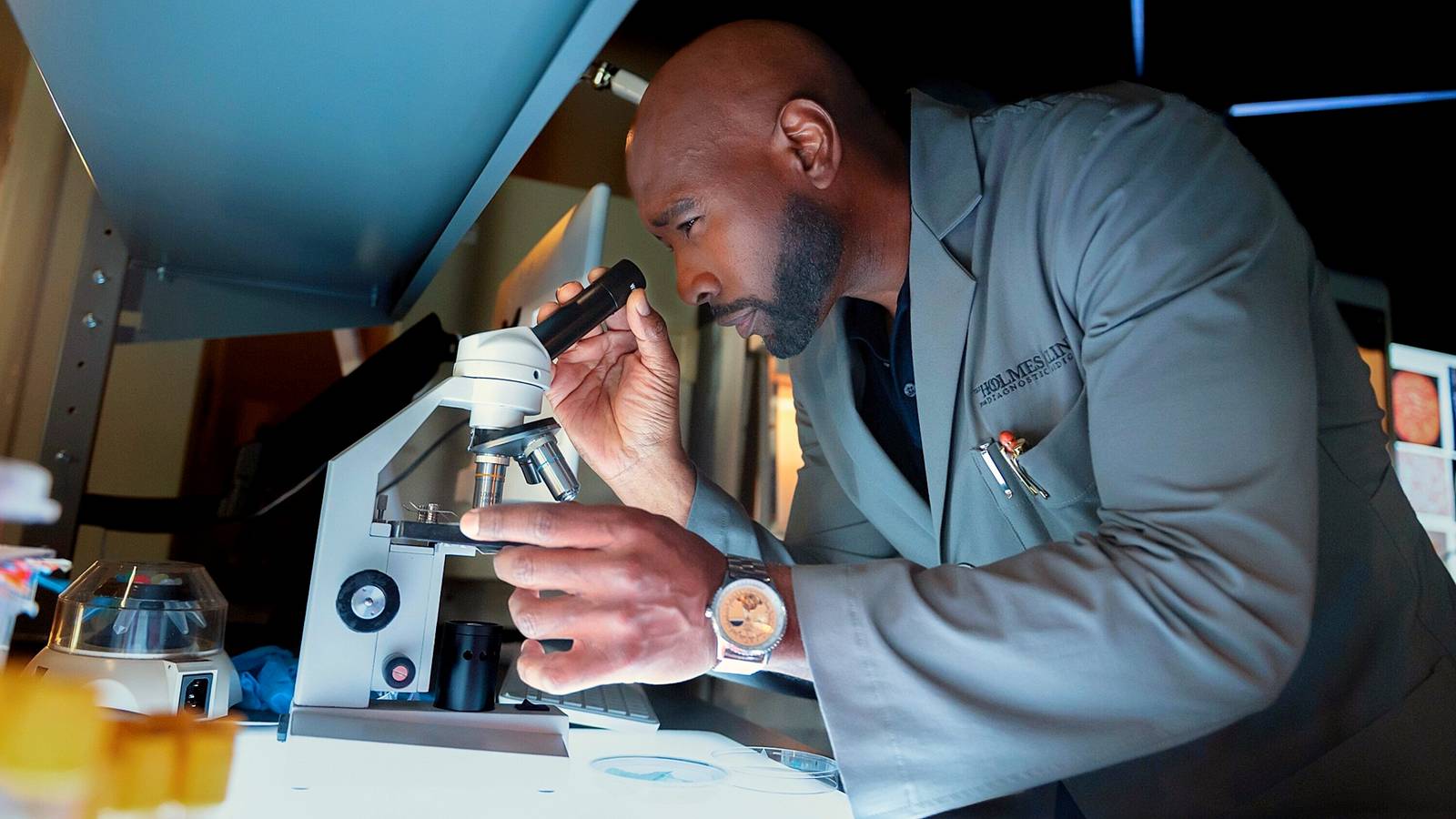The following contains spoilers for Watson Season 2, Episode 3, “Expletive Deleted” and Episode 4, “Happy When It Rains,” now streaming on Paramount+.
One of the more unique adaptations of the Sherlock Holmes mythos is Watson, created by Craig Sweeny for CBS. From setting the show in his hometown of Pittsburgh, PA, to Morris Chestnut’s portrayal of John Watson’s genetics specialization, the show shakes up conventions surrounding the nearly 140-year-old character. Some adaptations attempt to ground the consulting detective in realism, while others delve into science fiction and fantasy. The third episode in Watson Season 2, “Expletive Deleted,” is the kind of allegorical storytelling only sci-fi can pull off.
Beyond mere longevity, Sherlock Holmes and John Watson remain extremely popular characters. In a way, the “universe” Sir Arthur Conan Doyle created serves as a precursor to modern near-mythic fictional characters, ranging from superheroes to space adventurers. Unlike Spock, Chewbacca, Groot, or Krypto, however, the consulting detective team from 221B Baker Street is firmly in the public domain. There will always be more traditional adaptations, but now storytellers like Sweeny can push the limits of what defines these iconic characters. Morris Chestnut understands that John Watson “is a symbol” as much as he is a character. Sure, they “put a little different spin on” the Holmes mythology, but this is precisely what frees them to go beyond a simple “whodunit,” whether the perpetrator is a criminal, a germ or a single gene. The medical framework allows Watson to, essentially, become Sherlock by applying all he learned from him. Save for actual trained professionals, it doesn’t really matter to the casual viewer if the diagnoses, scientific jargon or even the conditions themselves are accurate. Unlike Sherlock, all of Watson’s mysteries unfold within a human being.
Like House, Watson Is a Medical Show More About Mystery Than Accuracy
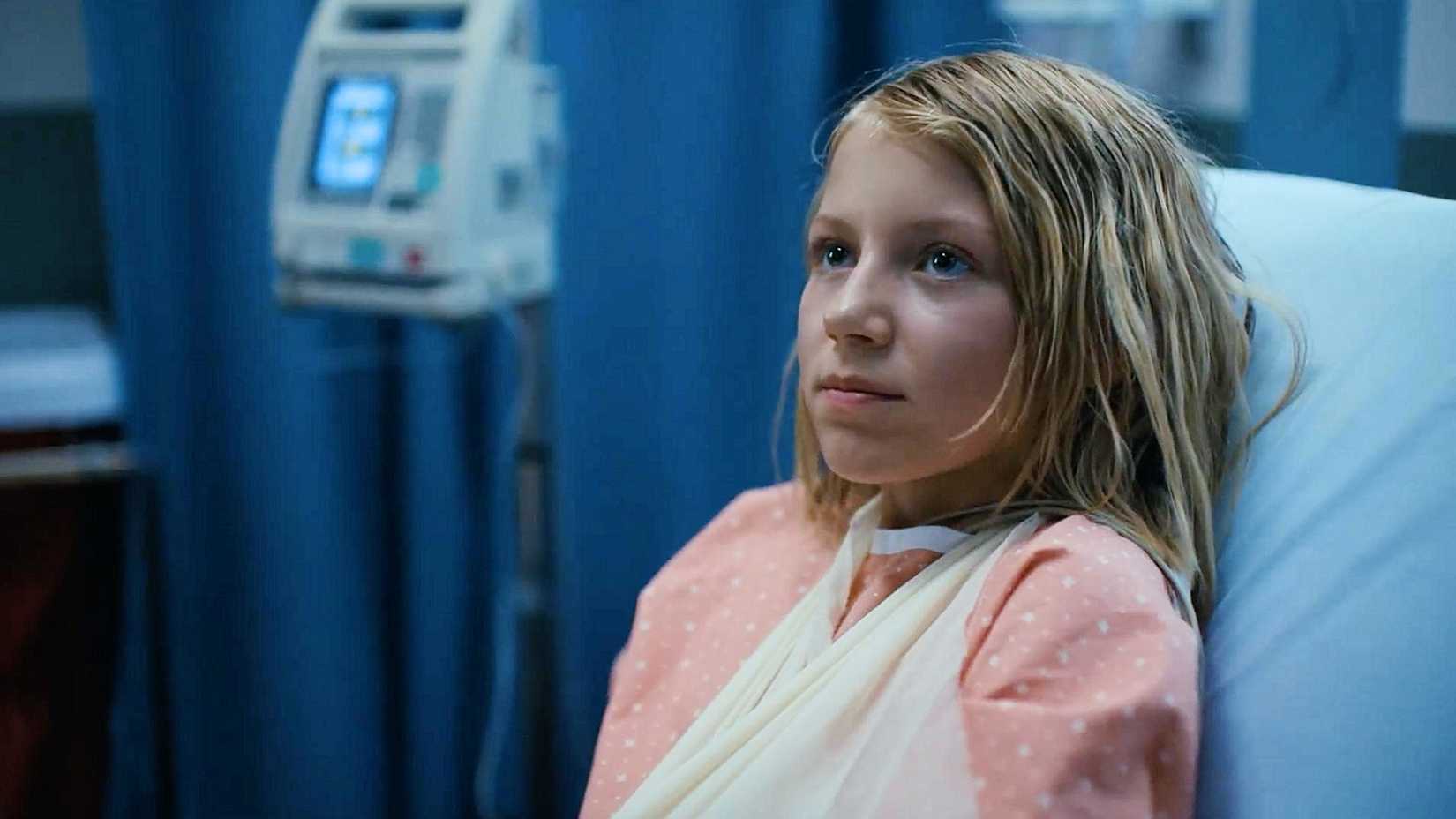
Stills from Watson Season 2, Episode 3 “Expletive Deleted”Image via CBS
While Watson’s connection to Sherlock Holmes is prominent, it’s more comparable to House. Hugh Laurie’s irascible, limping doctor is Sherlock Holmes, just an American version of the character who attended medical school. Like Holmes, House combines ingenuity with encyclopedic knowledge to discern the most unlikely and exotic conditions. Watson is naturally gifted as a doctor, as well, but he can apply Holmesian skills that he picked up from the man himself. Serving as both justification and obfuscation, his specialization in genetics directly applies his deductive insight into a field where his fellow doctors lack his specific expertise. Put another way: the question is never whether John Watson will solve the medical mystery or not.
On the other side of town from Watson’s University Hospital of Pittsburgh, Doctor Robby Robinavitch, played by Noah Wylie, works out of the equally fictional Pittsburgh Trauma Medical Center. There are a number of reasons some medical drama fans prefer The Pitt over Grey’s Anatomy or other legendary TV doctor shows. The show’s use of medical terms, treatments, and even workplace minutiae shows impeccable attention to detail. This devotion to accuracy heightens the drama because the work of emergency room doctors and nurses is the show. With Watson, the medical aspect of an episode is merely the doorway to a character-driven story. John, his fellow doctors, and driver-turned-nursing-student Shinwell Johnson often go beyond mere diagnoses and treatments. These characters have the luxury of meeting their patients on a person-to-person level that would never work in The Pitt.
Many iterations of Sherlock Holmes, which most strictly adhere to Conan Doyle’s characterization, are great at deductions but not so good with emotion. Arguably, John Watson exists as a character to be a humane, empathetic voice that Sherlock actually listens to. His ability to connect with people is Watson’s gift, and it can also be a weakness. In Season 1, Sherlock “haunted” Watson when deduction, not medical knowledge, became the only way to save a woman’s life. Long-running stories often showcase how John changes Sherlock, but Watson shifted him from an emotionally intelligent sidekick into Holmes’s best student.
Watson’s Unbelievable Medical Mystery Is Sci-Fi and a Vehicle for Allegory
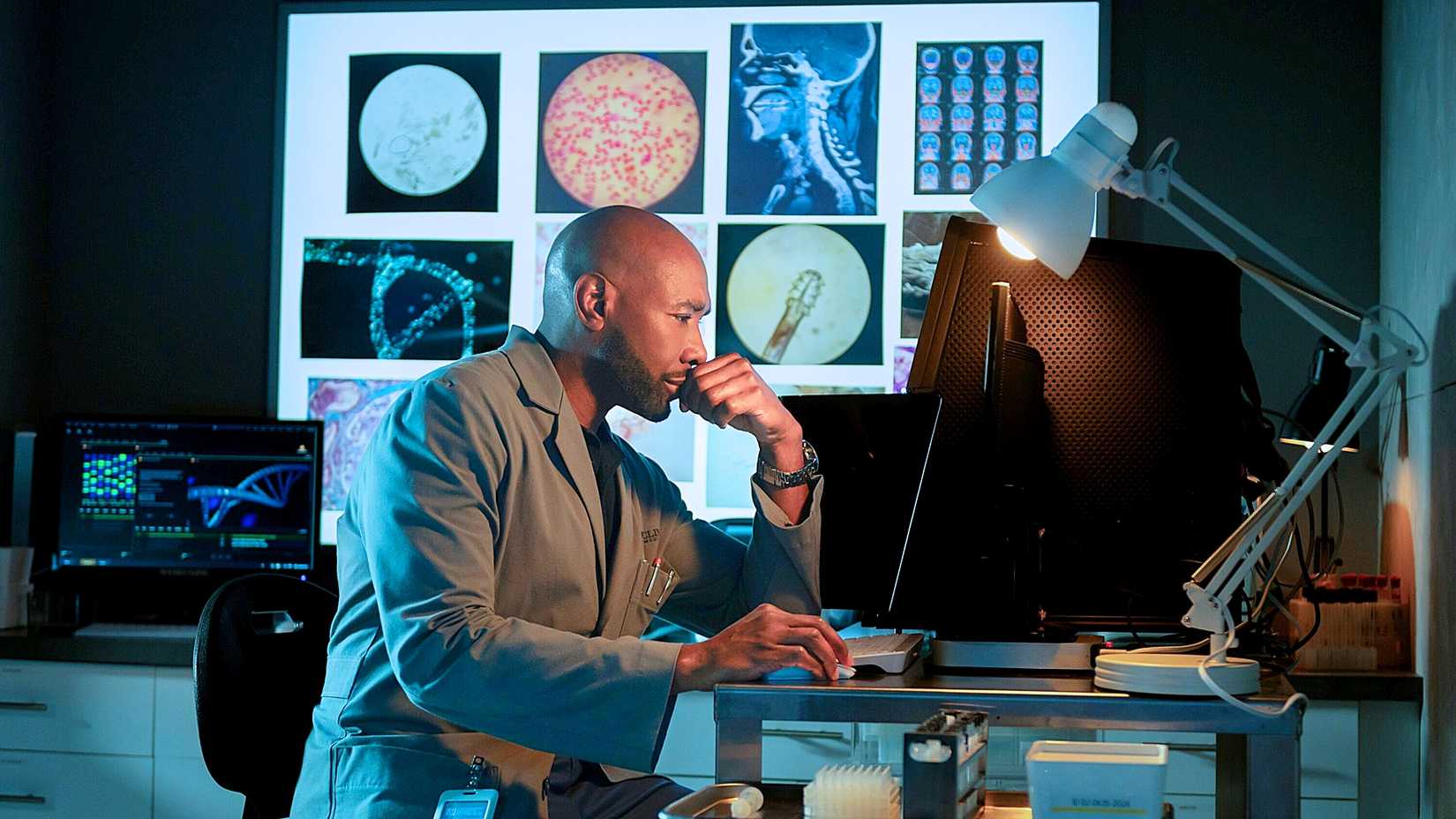
Stills from Watson Season 2, Episode 3 “Expletive Deleted”Image via CBS
The premise of “Expletive Deleted” centers on a woman in her thirties named Max Bowers with a medical condition that makes her look like a child. Young actor Ava Anton’s performance is aided by the character’s frequent (bleeped) swearing. There are genetic conditions that affect aging and appearance in real life, like Turner or progeroid syndromes. Still, nothing in reality even remotely resembles a condition like this. In fairness, Watson doesn’t pretend as much. None of the experienced doctors on the UHOP staff has ever seen anything like it before. Of course, Watson figures it out, but the answer is the name of a gene that means nothing because most people have never heard of it.
What makes the story worth watching is what Watson does for her as a person, not a patient. This sets Watson apart from other Sherlock Holmes adaptations. He is just as driven as Sherlock to solve any given mystery, but that’s not really his job. Healing his patients often goes far beyond simply identifying the condition and its treatment. Max’s fictional predicament is initially a source of humor, but viewers concerned about medical accuracy aren’t laughing. Judging these narrative trees so harshly caused many fans to miss the larger allegorical forest. On the face of it, Max’s condition seems silly. Yet, viewers learn alongside the other characters just how isolated, desperate and alone she feels. Independent of her aging issues, Max believes she has cancer and refuses treatment because she’s given up on life.
Just like Season 1’s story about the healthcare system’s heartlessness around sickle-cell cures, “Expletive Deleted” is a subtle examination of how the system fails people. Watson discovers that Max comes from a rural area far away from hospitals or serious doctors’ practices. While Max’s condition isn’t real, these medical deserts are. Obviously, people who need care suffer without the option to get it. Yet, Max represents the people who don’t know what’s ailing them. Visiting doctors can’t invest the time and study needed to help her. Most of the time, such patients are met with disbelief and treated like a troublesome child. That’s why instead of dreaming up an equally sci-fi “cure” for Max, the episode ended with Watson revealing she’s not “alone.”
The Pitt Aims for Realism, But Watson’s Healing Philosophy Doesn’t Suffer From Inaccuracy
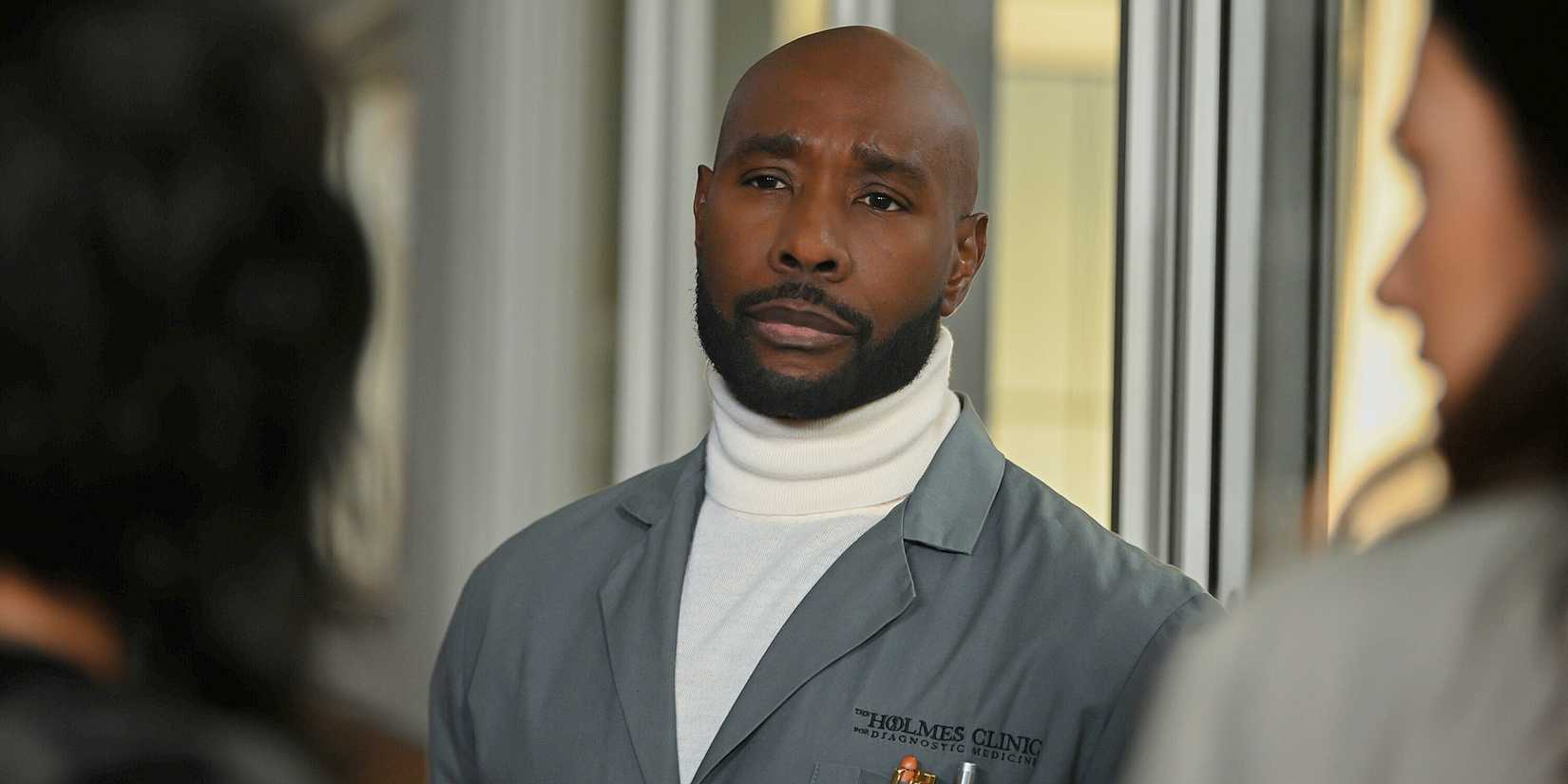
Stills from Watson Season 1, Episode 13, “My Life’s Work, Part 2,” starring into Morris Chestnut Eve Harlow Peter Mark Kendall Rochelle Ayres Ritchie Coster Inga Schlingmann Randall Park Kacey Rohl Tika Sumpter.Image via CBS
The medical genre needs a show like The Pitt, which is both a very human, character-driven series and an intense dramatization of the medical profession. While its top-notch effects and commitment to detail aid that effort, the HBO Max series still takes liberties with accuracy to elevate the story. Done right, viewers who know better forgive these exaggerations and dramatic choices because they serve the story. Yet, fiction isn’t an equation to be solved. It’s ‘the lie that tells the truth.’ The Pitt’s truthful lies unfold within the bounds of its realistic setting. As a sci-fi adjacent series, Watson may tell bigger “lies,” medically speaking, but this just makes its truths larger as well.
In an ER, the doctors and nurses work to address an immediate issue, often life-threatening. At the Sherlock Holmes Clinic at UHOP, Watson and the fellows save lives in the moment, but their real work focuses on the long-term. Figuring out things like whether Max actually had cancer or the source of her condition is important, sure. But Watson knew no medical treatment would truly heal her. The healthcare system failed Max so completely that Watson and company had to do nothing short of resuscitating her will to live. As another famous Pittsburgh native, Mister Rogers, used to say: what’s mentionable is manageable. Solving the mystery merely gave Watson the language he and Max needed to manage the real problem.
As a medical drama, Watson can be outlandish at times, which is where the Sherlock Holmes DNA comes in. The storytellers behind the CBS drama aren’t there to concoct intricately detailed and perfectly accurate medical mysteries. Those elements are there to bring Watson into the story and give him a challenge worthy of his mentor. What makes John Watson a hero, however, is what he does after he solves the problem to make someone’s life actually better.
Watson is available for streaming on Paramount+, and new episodes debut Mondays at 10 PM Eastern on CBS.
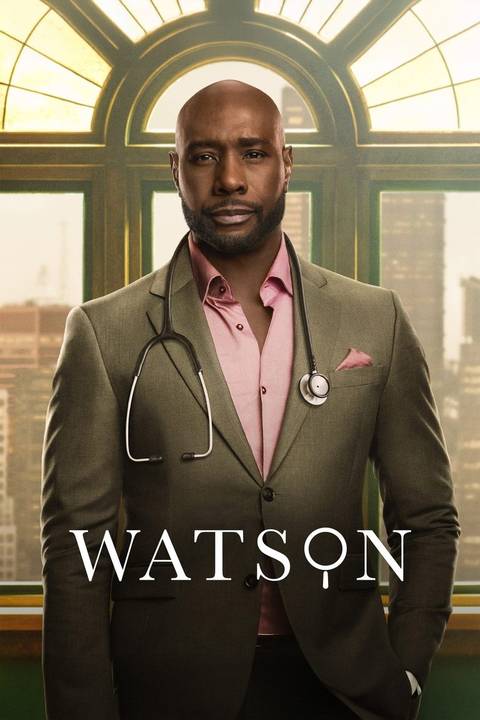
Release Date
January 26, 2025
Showrunner
Craig Sweeny
Directors
Larry Teng, Bille Woodruff, Jeffrey W. Byrd, Jennifer Lynch, Kristin Lehman, Mario Van Peebles, Ron Underwood, Tara Nicole Weyr, Christine Moore, Clara Aranovich
Writers
Craig Sweeny, Jason Inman, Charly Evon Simpson, Shardé Miller, Anna Mackey

Morris Chestnut
Dr. John Watson

Eve Harlow
Dr. Ingrid Derian

